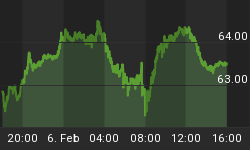Incident: Towards the end of last year, the European Commission presented its new energy strategy for the next decade, calling for investment of €1 trillion in the EU's energy network, among a series of other measures. Leading Eurocrats hope that an EU energy summit scheduled for next month in Budapest will endorse the proposals and give them some political traction.
Significance: The new energy strategy is a set of normative proposals that depend upon the member-states, the private sector, and other EU organs such as the European Parliament (EP) for clarification and implementation.
Background: The first EU energy "action plan" was formulated in 2006 and was then endorsed in May 2007 by a summit at the level of heads of state and government. That summit called upon the European Commission (EC) to elaborate a new action plan for the decade now beginning. The action plan now expiring has given birth to a number of initiatives, including a series of proposals for liberalization of the energy sector and unbundling electricity production from the provision to consumers, a "climate and energy" package targeting conservation and renewable energy as well as emissions trading, and a "strategic energy technology plan" intended to improve cooperation between the EU and its member-states in research and development of low-carbon technologies.
Last November, the EC presented its proposed "Europe 2020" strategy, based upon feedback from the EU ministers in May to the EC's first suggestions made in March. The EU ministers agreed in May that the new action plan should be ready for summit-level endorsement in a year's time from the presentation of the original draft, i.e., by March 2011. This is the meeting that Hungary, the current president-in-office, intends to be a flagship and showcase for its presidency, which lasts for six months during the first half of the new calendar year. The new action plan's major priority is energy efficiency, although it does not yet establish how to measure improvement. Another priority is to better integrate the all-European energy market, especially the electricity and natural gas markets.
Bottom Line: The EC wishes to make its energy efficiency goals binding upon the member-states while encouraging industry to participate in energy audits. It does not say where the €1 trillion investment that it is calling for will come from. It stresses the role of innovation, but China and the US are already overtaking the EU in wind power and solar markets. The EP's insistence on complete unbundling of electricity production from electricity transmission was not satisfied.
The focus on energy efficiency in particular lacks concrete measures. There is a palpable sentiment in some European political circles in favor of reducing total energy consumption, but these do not directly connect it with the question of how to sustain economic growth, besides suggesting that small and medium enterprises concerned with energy efficiency technologies might flourish. Increasing competition through unbundling is one way the EC sought to address the issue. It had wished to force companies owning both electricity generation and transmission facilities to sell one or the other. A compromise option was then included whereby energy producers could retain their assets but give up management control. Even that was not satisfactory for France and Germany, which successfully insisted that former state monopolies could retain ownership of their energy grids under external supervision. Companies would be able still to govern commercial and investment decisions, but the transmission networks themselves would operate independently.
The priority for improving integration of the energy market builds upon the autumn 2008 EC decision to encourage construction of a "supergrid." This supergrid is intended to allow member-states to share electricity from different sources, from North Sea wind farms to Spanish solar energy to the planned Nabucco gas pipeline from Central Asia through Turkey to Central Europe. The problem is that the supergrid initiative was but the attempt to integrate a collection of national proposals that are not necessarily mutually related. The inability of Brussels to coordinate the inchoate motives of its member-states has for decades been a chronic problem in EU policy implementation. The recent official abandonment of the Trans-European Networks in Energy (TEN-Es) as insufficient to their task is only the latest evidence of that Achilles' heel. (The fate of TENs in transport and in communications appears to be undecided.)
The main lines of the new "Europe 2020" plan are very much like those of the so-called Lisbon Strategy adopted in 2000 to cover the decade just ended. While this suggests a certain degree of continuity, it also indicates a certain failure to realize the earlier-adopted goals. Moreover, the EC seems not to have learned from the fact that the Lisbon Strategy had to be revised because it relied too much on the Brussels center and the member-states, ignoring the European regions, 270 of which are represented in an independent network called the Assembly of European Regions. Indeed, it is difficult to see how energy supply can be decentralized and electricity production multi-sourced without taking into account what the regions have to offer, particularly in terms of innovation. The regions are not only ethnic regions historically existing within current state frontiers but also transborder regions, whose representatives have continually made special contributions to "European construction" over the decades.
Source: http://oilprice.com/Energy/Energy-General/EU-Prepares-to-Approve-€1-Trillion-Master-Energy-Plan.html
By. GIR Analysts for OilPrice.com. For more information on oil prices and other commodity related topics please visit www.oilprice.com















